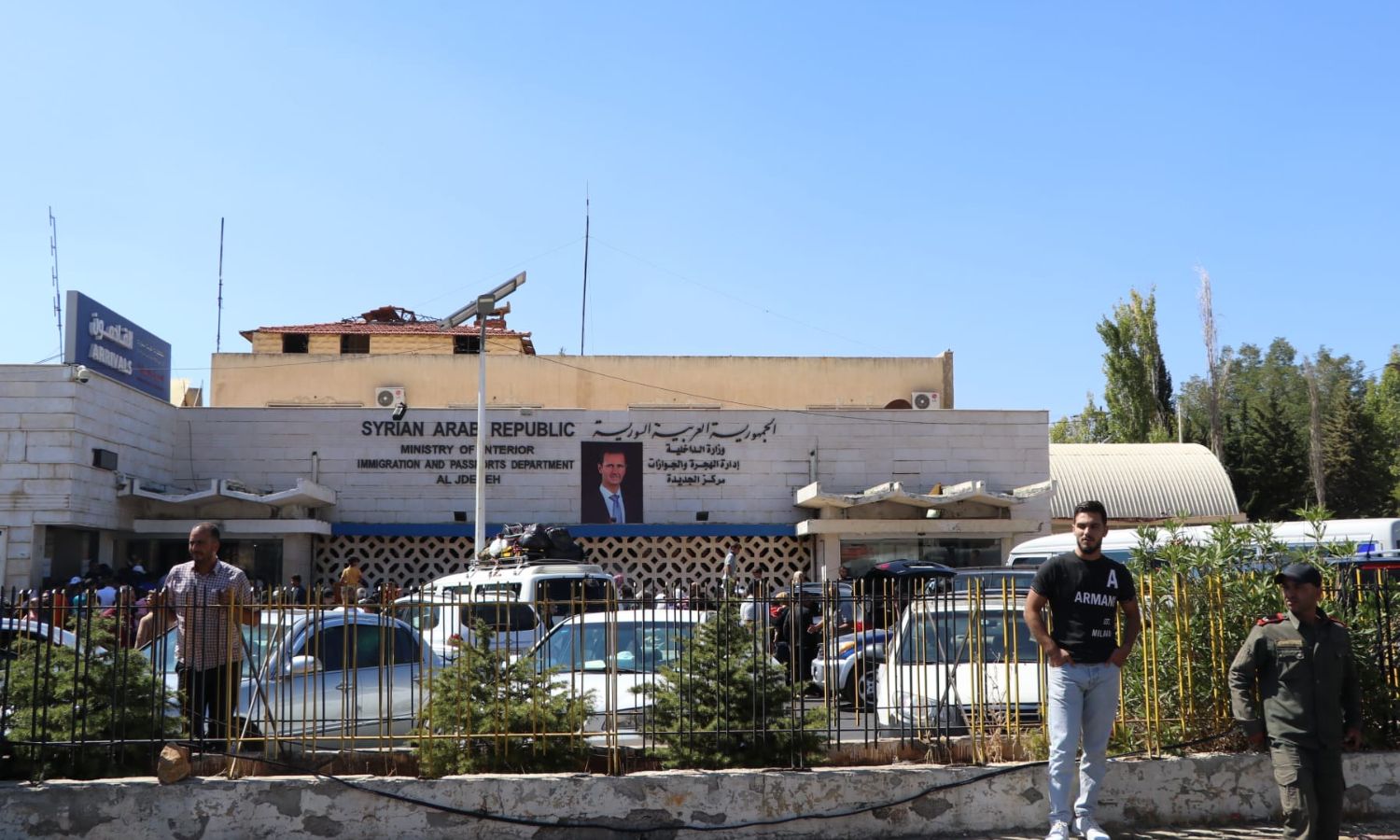



Regime forces arrested 26 individuals among Syrian refugees returning from Lebanon at the land border crossings, while it was documented that one person was killed under torture among the detainees.
The Syrian Network for Human Rights (SNHR) released a report on Tuesday, October 29, titled “A Dreadful Homecoming: Widespread Human Rights Violations Against Syrian Refugees Returning from Lebanon,” documenting the arrest of at least 26 people, including a woman.
The SNHR stated in its report that one of the detainees died under torture in one of the detention centers run by the Syrian regime during the period between September 23 and October 25.
The 20-page report clarified that Syrian refugees in Lebanon are facing deteriorating conditions that create a severe crisis in meeting their basic needs for food, housing, and healthcare.
With a lack of safe options and alternatives available for them to stay in Lebanon, some find themselves compelled to return to Syria, despite security risks and instability.
Refugees are faced with a significant dilemma between the lack of safety and resources in Lebanon, and the absence of security guarantees upon their return to Syria, leading them to make tough decisions that increase their suffering and exacerbate the humanitarian tragedy, according to the SNHR.
The report itself outlined a series of documented violations that included arbitrary detention, enforced disappearance, torture, and compulsory recruitment by regime forces, in addition to financial extortion and discrimination in distributing humanitarian aid.
The SNHR’s report documented that four of the detainees were forcibly recruited or placed in reserve, while one of the detainees was killed as a result of torture in detention centers, and his body was handed over to his family.
The report concluded that the regime continues to engage in arbitrary detention, enforced disappearance, and torture, representing a violation of Syria’s obligations under international human rights laws, including the International Covenant on Civil and Political Rights.
The SNHR’s report indicated that the absence of adequate guarantees for the protection of returnees consolidates an unsafe environment for their return, as returnees face systemic discrimination that includes the distribution of aid and the provision of shelter, and financial extortion, which constitutes a violation of the principles of equality and non-discrimination stated in “Article 3” of the Refugee Convention.
The discrimination directed against returning Syrians reflects “a systematic policy aimed at marginalizing returnees and increasing their suffering,” according to the SNHR.
Lebanese refugees benefited from official shelters, which numbered about 30 centers distributed across the provinces of Damascus countryside, Tartus, Latakia, Homs, Hama, and Aleppo, according to the report, while the majority of Syrian refugees, especially those whose homes had been destroyed, remained without shelter.
Many returnees were forced to rely on support from relatives or to seek refuge in informal gatherings, while others spent long periods outdoors. Some families received aid from the United Nations High Commissioner for Refugees (UNHCR) through local partners linked to the regime, but this aid was insufficient to meet their basic needs, according to the report.
The report provided estimates indicating that about 23,409 Syrian refugees returned from Lebanon to areas outside regime control, either due to their affiliation with those areas or to avoid security risks in regime-controlled areas.
Most returnees crossed through the al-Tabqa crossing near Raqqa or the al-Tayha crossing near Manbij in the rural outskirts of Aleppo to reach northeastern Syria, which is under the control of the Syrian Democratic Forces (SDF) towards the provinces of al-Hasakah, Raqqa, and Deir Ezzor.
Another group of returnees headed to the Aoun al-Dadat crossing near Manbij in preparation for crossing into areas controlled by the Syrian opposition in northwestern Syria.
The report noted that the crossings had witnessed repeated closures by controlling parties, forcing refugees to wait outdoors for several days in harsh weather conditions and without essential facilities, exacerbating their psychological and physical suffering.
Despite the fact that refugees seek to avoid the risks of arrest and pursuit in regime areas, they face deteriorating humanitarian conditions in areas outside its control, which the report described as “deplorable,” characterized by inadequate infrastructure and limited access to essential aid.
Returnees in these areas also face restrictions in the form of strict security measures, including repeated scrutiny of their political activities, alongside some being subjected to financial extortion by local groups controlling the crossings, forcing them to pay large amounts to ensure their safe passage.
There has been a movement of Syrians and Lebanese crossing into Syrian territory from the Lebanese-Syrian border following the Israeli military escalation in Lebanon.
The United Nations Relief and Works Agency for Palestine Refugees in the Near East (UNRWA) reported that the number of displaced individuals from Lebanon to Syria reached approximately 440,000 people as of October 27.
Meanwhile, the Russian news agency “Novosti” reported, on October 21, citing a source in the Syrian Department of Immigration and Passports, that the number of displaced persons from Lebanon to Syria reached 395,485 individuals, including 124,450 Lebanese displaced and 271,035 Syrians, between September 22 and October 18.
Lebanon is linked to Syria by six land crossings and is considered the only state with a land border with Lebanon, aside from the borders with occupied Palestine, which are active due to Israeli escalation, with no crossings for citizens to enter or exit.
The waves of displacement to Syria coincide with Israel’s continued bombing of border crossings between Syria and Lebanon.
if you think the article contain wrong information or you have additional details Send Correction